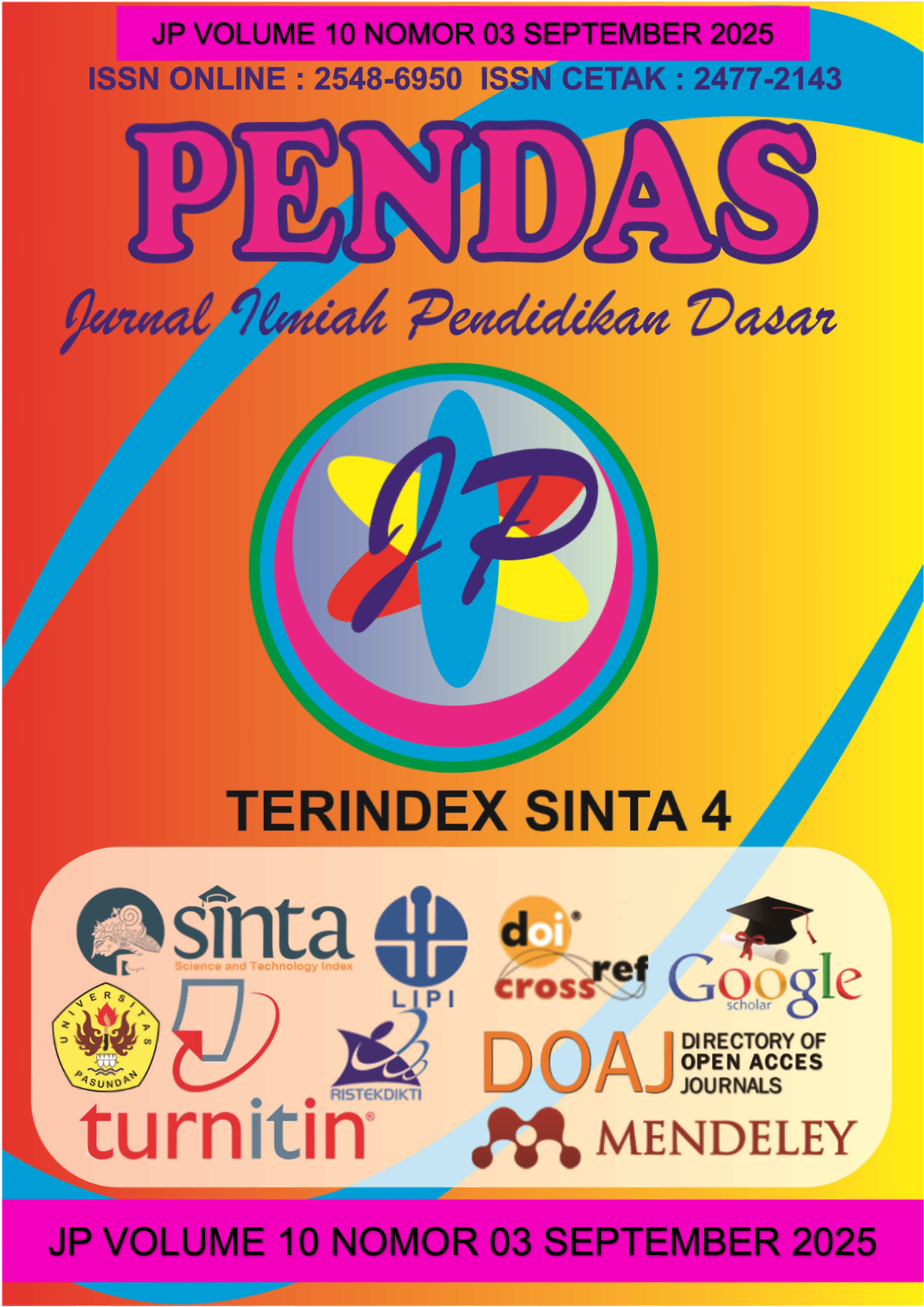PERGESERAN NILAI-NILAI BUDAYA DAN TRADISI DALAM UPACARA TINGKEBAN PADA MASYARAKAT SUKU JAWA DI NAGARI PADANG CANDUH, KECAMATAN KINALI, KABUPATEN PASAMAN BARAT
DOI:
https://doi.org/10.23969/jp.v10i03.32798Keywords:
Cultural Shift, Javanese Tradition, Tingkeban Ceremony, Modernization, Cultural Preservation.Abstract
This study aims to analyze the shifting cultural values and traditions of the Tingkeban ceremony among the Javanese community in Nagari Padang Canduh, Kinali District, West Pasaman Regency. Such shifts are influenced by modernization, globalization, socio-economic changes, and intergenerational differences in perception. The research employed a descriptive qualitative method with data collected through in-depth interviews, participatory observation, and documentation. Informants included traditional birth attendants (dukun bayi), local community members, and the younger generation.
The findings reveal that the Tingkeban ceremony, once rich in values of mutual cooperation, simplicity, spirituality, and respect, has undergone significant transformation. Traditional values have shifted toward individualism, materialism, and consumerism. Moreover, the younger generation’s understanding of the symbolic meanings of Tingkeban has declined, leading to the simplification of rituals. The main contributing factors to this shift include the influence of globalization, rapid technological development, and the community’s economic realities. Nevertheless, the younger generation holds great potential to revitalize and innovate the tradition to maintain its relevance.
This study emphasizes that preserving the Tingkeban tradition is essential not only for safeguarding cultural heritage but also for strengthening the cultural identity and selfhood of the Javanese community in the face of modernization. Revitalization efforts through education, the role of cultural leaders, and the creativity of the younger generation are crucial to ensuring that the tradition endures.
Keywords: Cultural Shift, Javanese Tradition, Tingkeban Ceremony, Modernization, Cultural Preservation.
Downloads
References
Buku
Adat Istiadat Provinsi Jawa
Tengah. (2013). Adat istiadatprovinsi Jawa Tengah. PT Indah
Jaya Adipratama.
Puspitorini, B. R. (2019). Jelajah Jawa
Tengah: Tata nilai dan istiadat
Jawa Tengah. Borobudur Inspira
Nusantara.
Isayani, A. (2020). Metodologi
penelitian. Syiah Kuala University
Press.
Purwasih, J. H. G. (2018). Perubahan
sosial. PT Cempaka Putih.
Palupi, R. (2022). Upacara adat Jawa
jaman now. Indocamp.
Sriyana, S. M. (2023). Perubahan
sosial budaya. PT Literasi
Nusantara Abdi Group.
Sudaryono, D. (2016). Metode
penelitian pendidikan. PT Kharisma
Putra Utama.
Wijayanti, F. (2019). Mengenal
perubahan sosial. PT Cempaka
Putih.
Wismulyani, E. (2018). Sejarah
transmigrasi. Cempaka Putih.
Wreksoremboko, A. (2024). Seni dan
budaya Jawa. CV Garuda Mas
Sejahtera.
Jurnal,
A., & Susanto, D. (2025). Mitoni dalam
tradisi suku Jawa di Desa
Wonodadi Kecamatan Selat
Penuguan. Edukreatif: Jurnal
Kreativitas dalam Pendidikan,
14(2), 235–241.
Cholistaisa, D., & Utami, T. (2022).
Tradisi Tingkeban (syukuran tujuh
bulanan ibu hamil) pada
masyarakat suku Jawa di Desa
Bajualan, Kecamatan Saradan,
Kabupaten Madiun. Jurnal Review
Pendidikan dan Pengajaran, 5(3),
190–195.
Riani, E. (2022). Tradisi Mitoni pada
masyarakat Katolik (Studi kasus di
Desa Harjowinangun, Kecamatan
Belitang, Kabupaten Ogan
Komering Ulu Timur). Jurnal Ilmu
Agama, 18(1), 39–51.
Pramesti, S. (2025). Nilai-nilai yang
terkandung pada tradisi Mitoni adat
Jawa di Desa Tanjung Sawit
Kecamatan Tapung Kabupaten
Kampar. Jejak Digital: Jurnal Ilmiah
Multidisiplin, 2(1), 134–142.
Sarbaini, W. (2021). Nilai-nilai
pendidikan dalam tradisi Tingkeban
budaya masyarakat suku Jawa
ditinjau dari perspektif filosofis.
Ability: Journal of Education and
Social Analysis, 3(2), 77–88.
Yani, F. A. (2023). Tradisi terkait
upacara kehamilan dan kelahiran
pada suku Jawa di Desa Rintis.
Multi Disiplin Dehasen, 6(4), 233–
238.
Downloads
Published
Issue
Section
License
Copyright (c) 2025 Pendas : Jurnal Ilmiah Pendidikan Dasar

This work is licensed under a Creative Commons Attribution 4.0 International License.














































